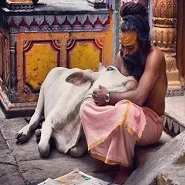Spirituality And Religion Complete guide
The Bhagavad Gita, a sacred text of Hinduism, addresses the concepts of spirituality and religion in several ways:
Spirituality: The Gita emphasizes the importance of spirituality as the ultimate goal of life. It teaches that true spirituality involves realizing one's inner divinity and achieving union with the Supreme Being, often referred to as Brahman or God. This spiritual realization leads to liberation (moksha) from the cycle of birth and death (samsara).
Religion: While the Gita acknowledges the importance of religious rituals and duties (dharma), it also transcends mere ritualism. It teaches that true religion is not merely adherence to external rituals but is characterized by devotion, selfless action, and inner transformation. Arjuna, the protagonist, is encouraged to fulfill his duty as a warrior (kshatriya) without attachment to the fruits of his actions, which represents the concept of performing one's duty (svadharma) as a form of worship.
Unity of Spirituality and Religion: The Gita emphasizes the unity of spirituality and religion, teaching that one can attain spiritual realization through the practice of one's religious duties with devotion and selflessness. It stresses the importance of integrating spiritual principles into everyday life, including work, family, and society.
The Bhagavad Gita presents spirituality as the essence of true religion, emphasizing the importance of inner transformation, devotion, and selfless action on the path to spiritual realization and liberation.

How to get spiritual ? Religion and Spirituality difference
In India cows are worshipped and are considered very sacred within the hindu religious community. In India cow is also called as Kamadhenu or wish fulfilling cow.Lets find out why the cow is considered sacred. India was once the land of agriculture and most of them used to have cows for farming and other needs.
Why Do Hindus worship the cow ?
In India cows are worshipped and are considered very sacred within the hindu religious community. In India cow is also called as Kamadhenu or wish fulfilling cow.Lets find out why the cow is considered sacred. India was once the land of agriculture and most of them used to have cows for farming and other needs.
Vegetarian diet and its importance ?
Why are we talking about food in 1st place? Why do we need to be vegetarian? If you see people who eat satvic diet, they will look more pleasant, joyful and they have glow on their face.
Patanjali Ashtanga Yoga- Step By Step Guide To Enlightenment
The Ashtanga Yoga of Patanjali is the systematic exercise of yoga discovered in the historical yoga systems. Therefore, an exceptional effort is needed to understand the whole system to reach the ultimate. The real purpose of yoga is liberation, which arises from the union between our thoughts and body. When our thoughts are impure, we identify ourselves with the body.
Ekadasi fasting significance in life
Ēkādaśi, is the eleventh lunar day, which occurs 2 times a month in an vedic calendar. Ekadasi can be split into eka (means 1 ) and dasa (means 10) i.e: 1+ 10 = 11. Ekadesi is not just spiritual its also scientifically proven.According to Ayurveda those who eat meat should fast for a month and break after sunset.